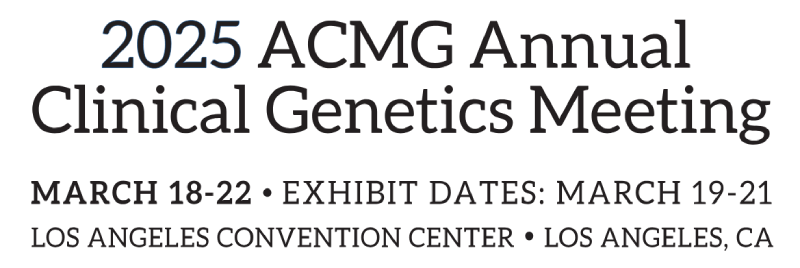Bridging Neurology and Genetics in Mitochondrial Disease: A TK2d Case Study (This activity is supported by UCB)
18 Mar 2025
Venue:
JW Marriott Los Angeles LA LIVE
Meeting Room:
Gold Ballroom 2
ACMG offers industry and related organizations the opportunity to host non-commercial, grant-supported educational satellite sessions in conjunction with the meeting, enhancing the educational experience for attendees. Corporate Educational Satellite Sessions are planned solely by corporations/industry, ACCME providers, medical education companies and/or non-profit organizations. These sessions focus on highlighting new developments, generating interest in innovative products or services, and sharing the latest insights with meeting participants. These activities are not part of the official ACMG meeting programming and are not accredited by ACMG.
Case-based exploration of the differential diagnosis of a rare myopathy, with a focus on mitochondrial disease background and epidemiology. Further discussion on thymidine kinase 2 deficiency (TK2d), its genetic basis, and clinical impact. Concluding with the crucial role of genetic testing in mitochondrial disorder management.
Faculty:
Jennifer Yang, MD, Professor Neurosciences; University of California – San Diego
Austin Larson, MD, University of Colorado
Pre-registration is required.
For more information and to register
Case-based exploration of the differential diagnosis of a rare myopathy, with a focus on mitochondrial disease background and epidemiology. Further discussion on thymidine kinase 2 deficiency (TK2d), its genetic basis, and clinical impact. Concluding with the crucial role of genetic testing in mitochondrial disorder management.
Faculty:
Jennifer Yang, MD, Professor Neurosciences; University of California – San Diego
Austin Larson, MD, University of Colorado
Pre-registration is required.
For more information and to register
Learning Objectives
- Illuminate mitochondrial diseases and their mimicry of neuromuscular disorders.
- Explore the nuances of recognition and diagnosis of a rare and underdiagnosed mitochondrial disorder.
- Unveil early diagnostic strategies through genetic testing for neuromuscular and mitochondrial diseases.



)
)
)
)
)
)
)
)
)
)
)
)
)
)
)
)
)
)
)
)